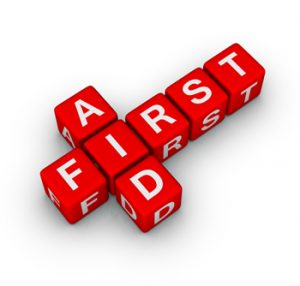Equine 911-The Basics
 Your horse isn’t acting normal or sometime during the night he managed to gouge himself in the leg, or he’s developed a sudden limp. These are typical situations that cause even experienced horse owners and riders concern. Although the lists below may not include everything that you would need to know, have or respond to, it covers many of the major types of emergencies that sometimes occur with horses.
Your horse isn’t acting normal or sometime during the night he managed to gouge himself in the leg, or he’s developed a sudden limp. These are typical situations that cause even experienced horse owners and riders concern. Although the lists below may not include everything that you would need to know, have or respond to, it covers many of the major types of emergencies that sometimes occur with horses.
If your horse is experiencing any of the following conditions or symptoms, he needs help fast:
- Heavy bleeding
- Choking
- Fracture
- Seizure
- Deep cuts
- Acute lameness
- Difficulty breathing
- Any injury to or inflammation of the eye
- Severe diarrhea
- Colic
For colic or any other equine health emergency, you’ll have a head start on getting your horse back on track if you can give the veterinarian information about your horse’s vital signs when you call. Be sure to ask your vet what the normal range of vitals are for your horse during a routine visit so that you have a baseline to use in the case of an emergency. Typical vitals for horses are:
- Temperature (99-101 for an adult horse)
- Heart rate (28-44 beats per minute)
- Respiratory rate (10-24 breaths per minute)
- Appearance of the gums (normal is moist and pink, with good circulation). Press on the gum with a finger and see how long it takes to return to pink. This should be only about 2 seconds.
- Listen to both sides of his gut by putting your head against each flank. You should hear gurgling sounds, similar to a growling stomach, on both sides.
Keep a first aid kit handy in your tack room or trailer, and be sure to check it at least once a year and to restock after any use. The basic kit should include items such as:
- a thermometer
- stethoscope
- antiseptic wash
- self-adhesive bandages
- scissors
- absorbent padding
- antibiotic cream
- saline wash
- rubber gloves
- hoof pick and knife
- vetwrap
- duct tape
- flashlight
- clippers
